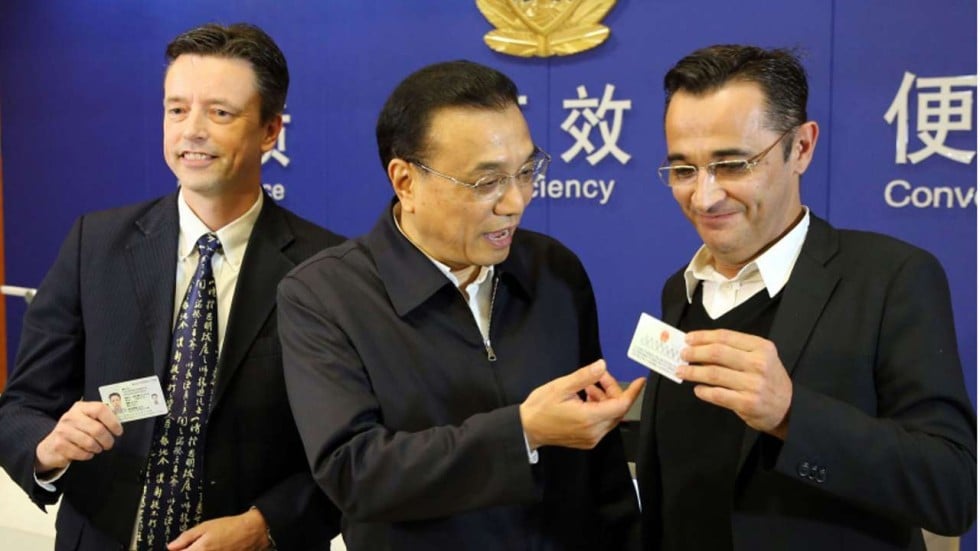The central government’s latest relaxation of green card rules indicates that the mainland has a growing need for international talent.
Under a directive issued by the State Council on Thursday, foreigners working in a greater range of areas would be eligible for permanent residency.
“In the past three decades, China focused on attracting foreign capital, and in the three decades ahead, it should shift to foreign talent,” said Wang Huiyao, director of the Centre for China and Globalisation, a Beijing-based think tank.
Until last June, only foreigners who worked in government departments or laboratories involved in “key national projects” could apply for permanent residency. The rule was then relaxed to include researchers at more institutes, including those with international funding.
President Xi Jinping told a meeting in Beijing on February 6 that China should reform its permanent residency regime. The same day the Ministry of Public Security reported that 1,576 foreigners had become permanent residents of mainland China last year, 163 per cent more than in 2015. By last September, about 5,200 people had been recruited under the campaign, according to Xinhua.

According to the central government, green card holders receive the same rights as Chinese citizens in areas such as investment, housing purchases and schooling, and the cards can be also used as a form of identification when buying a train ticket or booking a hotel room. The cards need to be renewed every 10 years but there’s usually no need to submit additional documentation.
Simon Lance, managing director of international recruiting firm Hays in China, said the mainland employment market still had a shortage of skilled candidates, particularly at mid and senior levels.
The company’s latest Asia salary guide, based on data form more that 3,000 employers across the region, suggested that in undersupplied areas, 65 per cent of employers would consider hiring an expatriate.
“Therefore, the statement from the State Council and the Communist Party’s Central Committee is very encouraging,” Lance said.
Source : South China Morning Post


















